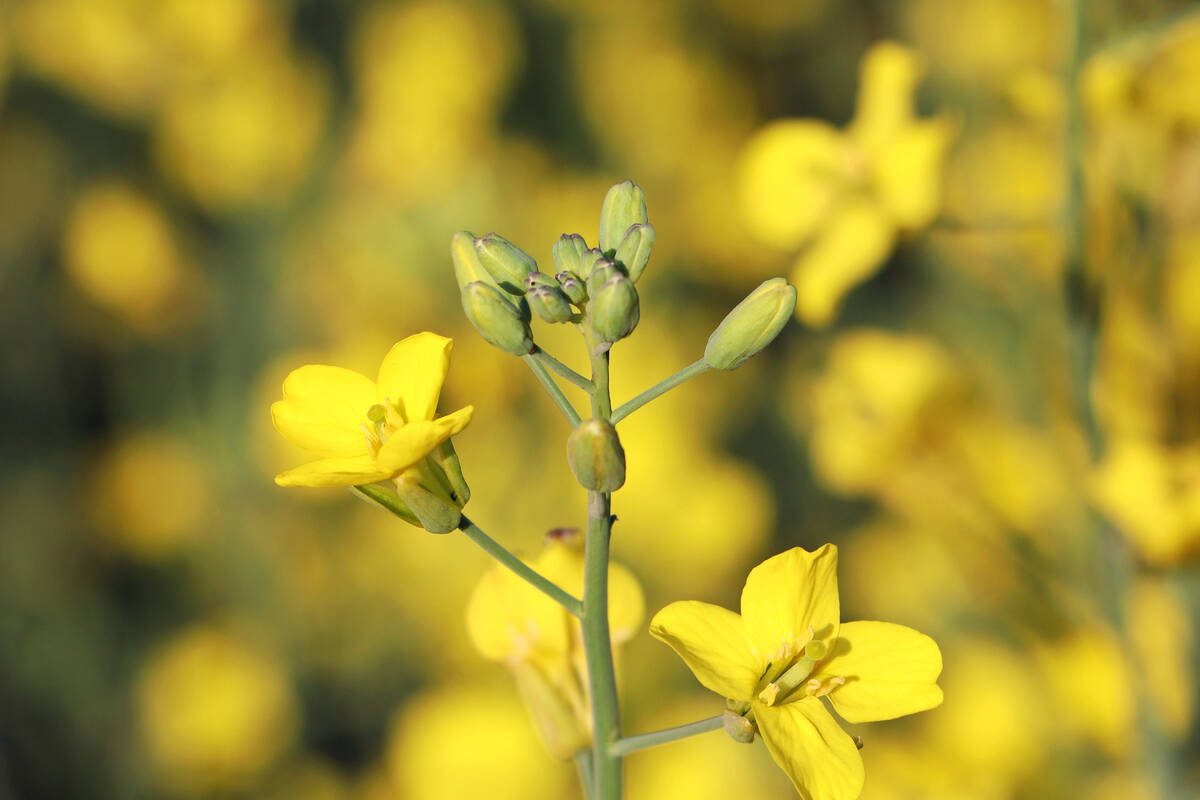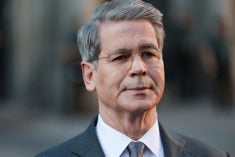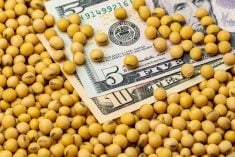Washington | Reuters — U.S. farm groups said Wednesday Japan should be suspended from Pacific trade talks if the Asian nation insists on keeping tariffs on sensitive agricultural sectors.
Japanese Economics Minister Akira Amari told Trans-Pacific Partnership (TPP) trading partners at talks in Singapore last week that Japan will not agree to abolish all tariffs on wheat, rice, dairy, sugar, beef and pork.
U.S. and Japanese negotiators will hold two more days of meetings in Washington on farm exports from Thursday and groups representing dairy, wheat, rice and pork farmers said they could still reach a deal.
Read Also

China rapeseed meal futures see largest one-day gain in almost three months after Xi–Carney talks
China’s most active Zhengzhou rapeseed (canola) meal futures posted their largest daily gain in nearly three months on Monday, after Canadian Prime Minister Mark Carney and Chinese President Xi Jinping met in South Korea last week without securing a breakthrough on tariffs.
“Failing that, the alternative is suspending negotiations with Japan for now and concluding a truly comprehensive agreement with those TPP partners that are willing to meet the originally contemplated level of ambition,” the National Association of Wheat Growers, U.S. Wheat Associates, USA Rice Federation, National Pork Producers Council and International Dairy Foods Association said in a statement.
“It is a big step but one that will be justified if Japan continues to refuse to open its agricultural sector to meaningful competition.”
The joint statement is important because of the power the farm lobby wields in Washington. If farm groups refuse to support the TPP, which would create a 12-nation trade bloc covering 40 per cent of the world economy, support in Congress could weaken further.
Beef producers from Canada, the U.S., New Zealand and Australia have already demanded that the TPP eliminate all tariffs on beef, following media reports that Japan might offer the U.S. a tariff reduction to around nine per cent.
Cattle farmers also want a guarantee Japan will offer the same terms it gives to the U.S. to other trading partners.
The four countries’ cattle producer groups, members of the Five Nations Beef Alliance, said they’re concerned that unless all parties to the TPP “step up to the plate and reaffirm their commitment to a trade liberalizing outcome, countries could begin to drift away from the goal of achieving a 21st-century agreement.”
The FNBA members, which include the Canadian Cattlemen’s Association and the National Cattlemen’s Beef Association (U.S.), said last Friday they “expect an accord which addresses commercial impediments rather than assigning them to the ‘too hard basket.'”
Australia has separately agreed a trade agreement with Japan cutting tariffs on frozen beef to 19.5 per cent and on fresh beef to 23.5 per cent. The U.S. has said the deal does not go far enough.
But U.S. Trade Representative Michael Froman said after the Singapore meeting the U.S. was pressing for tariff elimination to the “maximum extent possible,” suggesting some room for flexibility.
Japan, which levies average agriculture tariffs of 16.6 per cent, wants to protect its politically powerful farmers although Prime Minister Shinzo Abe is keen for reforms to open Japan’s economy and stimulate growth.
The Asian power’s entry to the TPP last year was a game changer for many participants given its high-income population and relatively low import penetration, and excluding Japan would make the TPP less attractive for some countries.
Froman has said any decision on whether Japan should leave the TPP is up to Japan.
As well as cutting tariffs, the TPP seeks to set common standards on issues like intellectual property and labor. More than 140 members of Congress have signed a letter urging better protection for workers’ rights, lawmakers said on Wednesday.
— Reporting for Reuters by Krista Hughes in Washington, D.C. Includes files from AGCanada.com Network staff.











